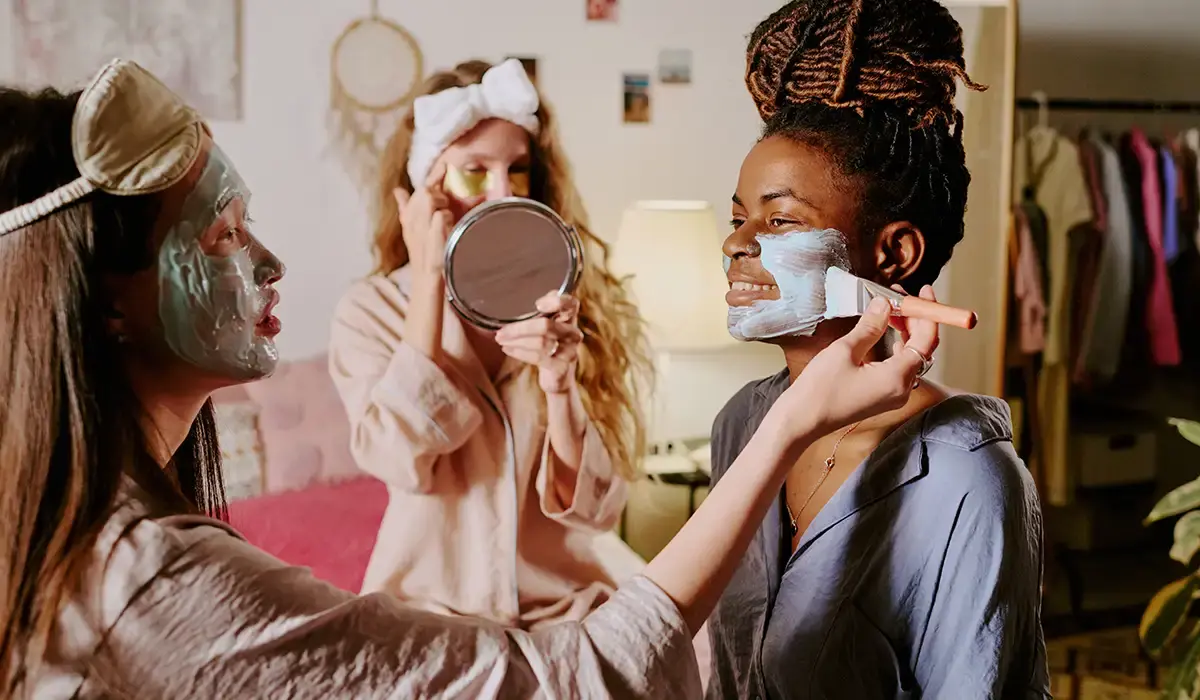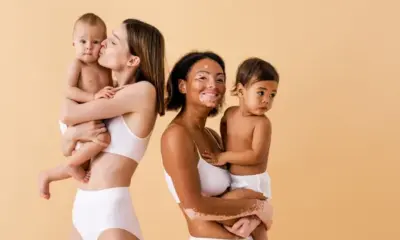Studies
Study Warns TikTok Skincare Routines May Hurt Tweens and Teens

Skincare Dangers for Teens: What Parents Need to Know About Viral Trends
Scrolling through TikTok reveals countless skincare routines, but many target young viewers with questionable practices and products. These videos, while popular, introduce serious skincare dangers for teens that parents must understand. Many tweens now follow complex routines they find online, often without guidance from professionals.
The Study Behind Social Media and Skincare Habits in Kids
A recent study published in Pediatrics investigated the skincare habits of children under 13 on TikTok. Researchers created accounts labeled as 13 years old to observe algorithm-recommended skincare content. Shockingly, hundreds of videos featured children—some as young as seven—demonstrating elaborate skincare routines.
Dr. Molly Hales, a study co-author from Northwestern University, shared how content creators promote products with risky ingredients. “Many regimens featured multiple exfoliants that raise sun sensitivity and the risk of allergic reactions,” she explained.
The research revealed several concerning facts:
- Skincare videos used an average of 11 active ingredients per routine.
- Many included acids like citric, glycolic, and salicylic acids—ingredients meant for mature skin.
- Only 25% mentioned daily sunscreen use.
- Over half included allergens tied to contact dermatitis.
- Some kids featured products worth over $500 in a single video.
- Girls often woke up at 5 a.m. to finish skincare routines.
These trends show the dangerous extremes young people follow in pursuit of unattainable beauty standards—one of the biggest skincare dangers for teens today.
Why Teens Should Avoid Certain Skincare Ingredients
Teens and tweens often lack the skin issues these products target, like wrinkles or sun spots. According to Dr. Hales, harsh exfoliants can irritate young skin and disrupt natural oil balance.
“Hydroxy acids and chemical exfoliants like glycolic acid offer no benefit to kids without acne,” she warned. “In fact, they cause more harm.”
Dr. Kristin Baird, a board-certified dermatologist, echoed these concerns. She sees young patients reacting to trendy products not formulated for adolescent skin.
“Strong exfoliants, fragrances, and essential oils increase risk for irritation and long-term skin sensitivity,” she noted. “Retinoids require medical supervision.”
Instead of chasing trends, Dr. Baird advises a simpler approach. “A gentle cleanser, lightweight moisturizer, and broad-spectrum SPF 30+ is plenty for most young people.”
Parents should educate their children on these facts to avoid skincare dangers for teens and prevent unnecessary treatments or damage.
Beauty Standards and Social Pressure from Skincare Content
These skincare videos do more than promote harmful products. They also amplify toxic beauty ideals and pressure kids to spend time and money chasing perfection.
Dr. Hales recalled one video where a 13-year-old criticized herself for breaking out due to missing one step in her routine. “She zoomed in on one small pimple as if it were a major failure,” she said.
Such perfectionism affects self-esteem, especially for kids comparing themselves to influencers with curated, filtered appearances. These influencers also tend to be white and thin, creating narrow beauty ideals.
Dr. Hales also raised concerns about subtle racial biases in skincare marketing. Terms like “glow” and “glowy” suggest lighter skin tones. Her team plans to investigate how these ideals affect children of color.
How Parents Can Address Skincare Curiosity Safely
If your child becomes interested in skincare, don’t panic. Start by discussing their motivations and gently correcting misinformation.
Dr. Molly O’Shea, pediatrician and spokesperson for the AAP, recommends delaying social media access. “Wait until age 13 to introduce TikTok or Instagram,” she suggested. “Supervise initial use closely.”
When teens want to try products, say yes to a few basics:
- A gentle, fragrance-free cleanser (especially at night)
- A mineral-based sunscreen (SPF 30 or higher)
- A simple moisturizer for dry areas
Dr. Baird encourages honest, open conversations. Ask your child what they hope to gain from a routine. “They might seek confidence, belonging, or control—not just better skin,” she noted.
Use these talks to teach media literacy. Explain that influencers may receive payment for promoting untested products. Emphasize that healthy skin comes from simplicity, not excessive products.
Finally, consult a pediatrician or dermatologist before starting any complex regimen. Doctors can tailor advice to your teen’s age, skin type, and needs.
Final Thoughts on Protecting Your Teen’s Skin and Confidence
The internet has changed how teens view skincare, beauty, and self-worth. Unfortunately, it also creates room for misinformation and harmful practices.
As these TikTok skincare trends grow, parents must remain proactive. Monitor media exposure, limit excessive routines, and prioritize education over aesthetics.
Talk to your teen about what they see online, and remind them that glowing skin comes from health and confidence—not expensive serums.
Explore more expert parenting advice and health updates by visiting our website today.












